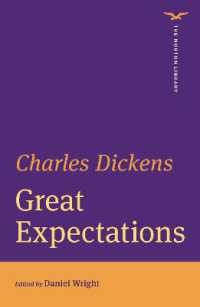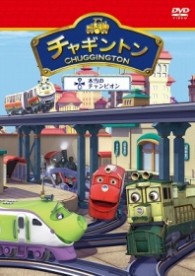- ホーム
- > 洋書
- > 英文書
- > History / World
Full Description
Early Modern English Foodways: A Critical Sourcebook is the first anthology of food-related writing in Renaissance England. Bringing together seventy passages from a two-hundred-year sweep of British history, the volume demonstrates how food connects all forms of life in the most intimate and public ways.
The sourcebook offers new insights into the early modern experience of sustenance. It introduces readers to the tribulations of the women who started a 1629 grain riot, reveals the primacy of eating in Thomas More's Utopia, and explains the significance of posset pots and wedding cultery. The volume features familiar voices such as Spenser, Shakespeare, Jonson, and Milton alongside lesser-known texts and objects to illuminate broader questions of gender, body, hospitality, religion, medicine, social status, ecology, and empire. Drawing from an expansive range of sources—including recipe books, travel narratives, philosophical treatises, and agricultural handbooks—these entries, many previously unpublished, have been expertly curated by leading scholars to map food's journey through early modern English culture.
With modern spelling adaptations, contextual headnotes, and comprehensive glossaries of culinary terms, this sourcebook is an accessible and engaging entry point into the field of early modern food studies, ready to use in and beyond the classroom. Its interdisciplinary focus makes this resource of value to students and scholars interested not only in food history but also in cultural studies, art history, and literature.
Contents
List of Illustrations
List of Contributors
Acknowledgements
Introduction
PART I Hospitality and Commensality
1 Anon., The Book of Carving (1513)
2 Thomas More, Utopia (1516; trans. Ralph Robinson, 1551)
3 Josias Bodley, Visit to Lecale (1602-3)
4 William Shakespeare and Thomas Middleton, Timon of Athens (c. 1605-06)
5 Ben Jonson, "Inviting a Friend to Supper" and "To Penshurst" (1616)
6 Mary Wroth, Urania (1621)
7 John Finet, Notebooks (1628-41)
8 Caleb Dalechamp, Christian Hospitality (1632)
9 John Taylor, Selected Works (1632-39)
10 Robert Herrick, Selected poems (1648)
11 Ann, Lady Fanshawe, Book of Receipts (c. 1665)
12 Ann Palthorpe's Posset Pot (1696)
PART II Religion and Spirituality
13 John Jewel & Thomas Harding, Eucharist Debates (1562-65)
14 Thomas Nashe, Lenten Stuff (1599)
15 Margaret, Lady Hoby, Diary (1599-1605)
16 Thomas Middleton, The Witch (c. 1616)
17 Lewis Bayly, The Practice of Piety (1616)
18 George Herbert, The Temple (1633)
19 Nehemiah Wallington, Notes and meditations (1641-54)
20 Richard Standfast, Clero-Laicum Condimentum (1644)
21 The Diggers, The True Levellers' Standard Advanced (1649)
22 Roger Crab, The English Hermit (1655)
23 Margaret Cavendish, Poems and Fancies (1664)
24 John Milton, Paradise Lost (1674)
25 Anon., The Kentish Miracle (c. 1684)
PART III Medicine and the Body
26 Thomas Cogan, The Haven of Health (1584)
27 Edmund Spenser, The Faerie Queene (1596)
28 Simon Forman & Richard Napier, Casebooks (1596-1634)
29 William Shakespeare, Henry IV, Part 1 (c. 1597)
30 Hugh Plat, Delights for Ladies (1600)
31 Helkiah Crooke, Mikrokosmographia (1615)
32 Elizabeth Clinton, The Countess of Lincoln's Nursery (1622)
33 Ben Jonson, Neptune's Triumph for the Return of Albion (1624)
34 Thomas Moffett, Health's Improvement (1655)
35 Henry Stubbe, The Indian Nectar (1662)
36 John Locke, An Essay Concerning Human Understanding (1671, 1689)
37 Thomas Tryon, Wisdom's Dictates (1691)
PART IV Social Status and Stratification
38 George Gascoigne, The Noble Art of Venery (1575)
39 Richard Stonley, Diaries (1581-1598)
40 William Harrison, Description of England (1587)
41 Sir Anthony Browne, A Book of Orders and Rules (1595)
42 Lettice Kinnersley, Letter from Lettice Kinnersley to her brother Walter Bagot (c. 1608)
43 Gervase Markham, The English Housewife (1615)
44 Jonas Melcher, Elizabeth Norden's wedding fork and knife, 1622
45 Women's Grain Riot in Maldon, Essex (1629)
46 Grace & Sarah Saunderson's Receipt Book (1660s-1700s)
47 W. Turner, The Common Cries of London Town (1662)
48 Robert May, The Accomplisht Cook (1660/1678)
49 Hannah Woolley, Selected household advice and recipes (1662-1675)
PART V Agriculture and Ecology
50 Thomas Tusser, Five Hundred Points of Good Husbandry United to as many of Good Housewifery (1573)
51 Hugh Plat, Sundry New and Artificial Remedies Against Famine (1596)
52 John Gerard, The Herbal, or General History of Plants (1597)
53 William Shakespeare, The Winter's Tale (c. 1611)
54 Nathaniel Bacon, Cookmaid with Still Life of Vegetables and Fruits (c. 1620-25)
55 Ralph Austen, A Treatise of Fruit-Trees (1653)
56 William Coles, The Art of Simpling (1656)
57 John Evelyn, The French Gardener (1658) & Acetaria: A Discourse of Salads (1699)
58 Susanna Packe, "To Boil a Sturgeon" (1674)
59 John Locke, Two Treatises of Government (1690)
PART VI Empire and Exchange
60 Pietro Martire d'Anghiera, The Decades of the New World (1516; trans. Richard Eden, 1555)
61 André Thevet, The New Found World, or Antarctike (1558; trans. Thomas Hacket, 1568)
62 Thomas Harriot, A Brief and True Report of the New Found Land of Virginia (1590)
63 William Shakespeare, A Midsummer Night's Dream (c. 1595)
64 Michel de Montaigne, "Of the Cannibals," (c. 1580 trans. John Florio, 1603)
65 Council of Virginia, A True Declaration of the Estate of the Colony in Virginia (1610)
66 Thomas Coryat, Coryat's Crudities (1611)
67 Thomas Roe, The Embassy of Sir Thomas Roe to India (1615-19)
68 Richard Whitbourne, A Discourse and Discovery of Newfoundland (1620)
69 Thomas Middleton, A Game at Chess (1624)
70 Richard Ligon, A True and Exact History of the Island of Barbados (1657)






